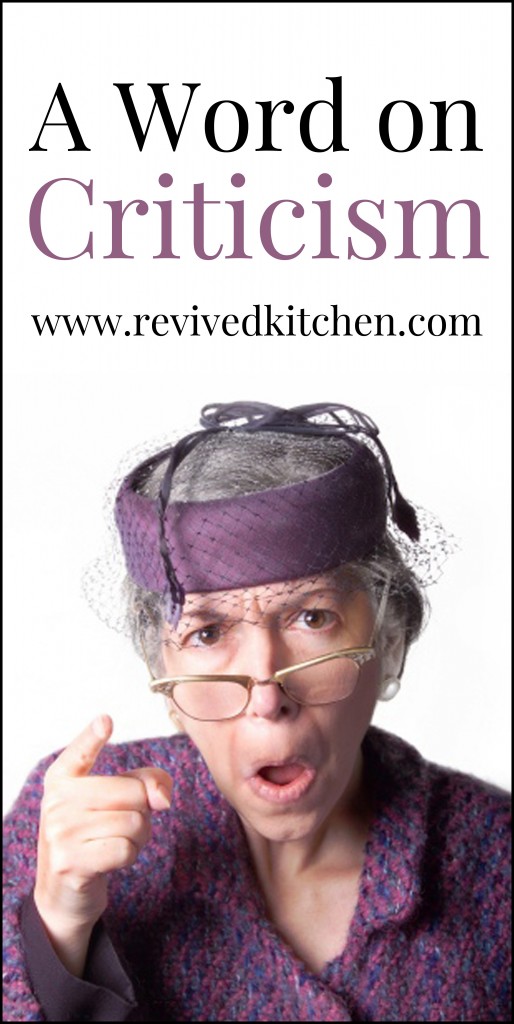I haven’t felt all that on top of things lately. The last few months, I’ve spent my days dazed and confused about my life and where it’s going. My success at relationships is at an all time low.
So what’s a girl to do?
Well, when you’re looking for some direction, the best place to start is with yourself.
Thus, today has been a self-improvement day. A day to enrich and revive the spirit.
I’m reading the classic psychology book “How to Win Friends and Influence People.” For more than sixty years the rock-solid, time-tested advice in this book has carried thousands of now-famous people up the ladder of success in their business and personal lives and has sold over 15 million copies. And if that’s not enough, the 2,000 positive reviews on Amazon should convince you that this book is a good one to own.
But anyway, I’d like to share with you some of the main topics in this book in hopes of convincing you to read the whole thing. Today’s topic will be criticism.
“Don’t Criticize, Condemn, or Complain”
Criticism Always Leads to Resentment
Oh boy, what a heavy first-hitter, huh? All of us have been criticized at some point or another, and I think we can all agree criticism hurts. Criticism “puts the person on the defensive and usually makes some strive to justify themselves. Criticism is dangerous, because it wounds a person’s precious pride, hurts his sense of importance, and arouses resentment.”
Studies in human psychology have discovered time and again that positive reinforcement leads to lasting changes, whereas criticism leads to demoralization and non-compliance. No one wants to be told they are wrong. And that’s just human nature. There’s no changing it. There’s only changing yourself, and if criticism won’t work, then it means we have to find another way to communicate with our fellow humans.
I learned 30 years ago that it is foolish to scold. I have enough trouble overcoming my own imitations without fretting over the fact that God has not seen fit to distribute evenly the gift of intelligence. (John Wanamaker)
Who does criticism serve?
Who feels better after being criticized? No one. The only person that is served by criticism is the one doing the criticizing. As human beings, we criticize as a way to vent, to let out our feelings, our troubles, our frustrations. But the hurt we inflict is destined to come back to us as resentment from the other person.
Judge not, that ye be not judged. (President Lincoln)
I bet every single person reading this can remember a time someone said something critical about their intelligence or their manner of dress or the way they change a tire, wash the car, fold the laundry—or for heavens sake, how they drive! Think back. Did it hurt then? Does it hurt now? I bet it still stings a little.
I remember when I was a freshman in high school, barely 14, and a senior boy came up behind me in the lunch room, sneered, and told me “you have a bad ass.” I swung around, bewildered by the comment. Never before had anyone made a comment about my ass, much less criticized it, and honestly it was the first time it occurred to me that anyone was looking at it. The comment stuck with me for years.
I will speak ill of no man and speak all the good I know of everybody. (Benjamin Franklin)
As a child, someone close to me told me I wasn’t funny. All throughout middle school and high school, their comments rang in my ears, destroying my confidence.
If someone were to critique my hair and said it looked funny, I probably wouldn’t be troubled to do it that way again.
Criticism destroys confidence and can stir up anger.
Don’t complain about the snow on your neighbor’s roof, when your own doorstep is unclean. (Confucius)
Forgive and Forget
Easier said than done, right? It takes a lot of self-control to be understanding and forgiving. It also takes a strong person to take a look in the mirror and challenge themselves to change bad habits. I’m not saying I’m exceptionally strong, but today, this is my goal: to look in the mirror and put forth an effort to stop criticizing others.
Rather than being hard on our friends and family, let’s try to practice empathy and understanding. “As Dr. Johnson said, ‘God himself, sir, does not propose to judge man until the end of his days.’
Why should you and I?”
Get the Book
What we hope ever to do with ease we must learn first to do with diligence. (Dr. Samuel Johnson)










I’ve been reading your blog for awhile, though I’m not much of a commenter. Although I haven’t read it, I have friends who love this book. There are definitely kind and gentle ways to say hard things, especially with positive reinforcement and encouragement, as you said. On the other hand, I love praising my children and try to do it constantly and meaningfully, but I still correct them which I think is important. I wanted to share an article that I read several years ago, which I strive to remember every day but often fail. It is so freeing though! I highly recommend reading it and hope it encourages you too.
http://www.peacemaker.net/site/apps/nlnet/content3.aspx?c=aqKFLTOBIpH&b=1084263&ct=1245843